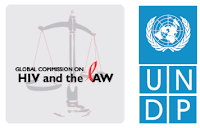Have a great idea for a new slogan promoting condom use? If so, you could see it in print on our condom packs around the world!
Since 2005, IPPF Member Associations have distributed an estimated 1 billion condoms worldwide. That's a lot of condoms! To celebrate this acheivement, we are looking for a new, creative slogan to print on our male condom packs.
Use your creativity and literary flare to come up with a new slogan promoting condom use, and you could see your slogan on our new IPPF condom packs. Share your idea with the world on the IPPF Facebook page!
Why condoms?
Male and female condoms are the only dual protection method available for the prevention of unintended pregnancies and sexually transmitted infections, including HIV. When used consistently and correctly, condoms are also one of the most effective methods. Yet this proven strategy seems to have increasingly been de-prioritised in the global and different national agendas. It is time for a stronger condom movement, one which focuses on pleasure and creates demand for both male and female condoms, as well as lubricant.
As a global service provider and leading advocate of sexual and reproductive health and rights for all, IPPF has a key role to play to ensure that every sexually active person has access to good quality condoms, is motivated to use them, and has the knowledge to do so correctly.
To read more about this effective and proven strategy, read a previous blog post on condoms: http://ippfaids2010.blogspot.co.uk/2010/10/hiv-update-condoms.html


